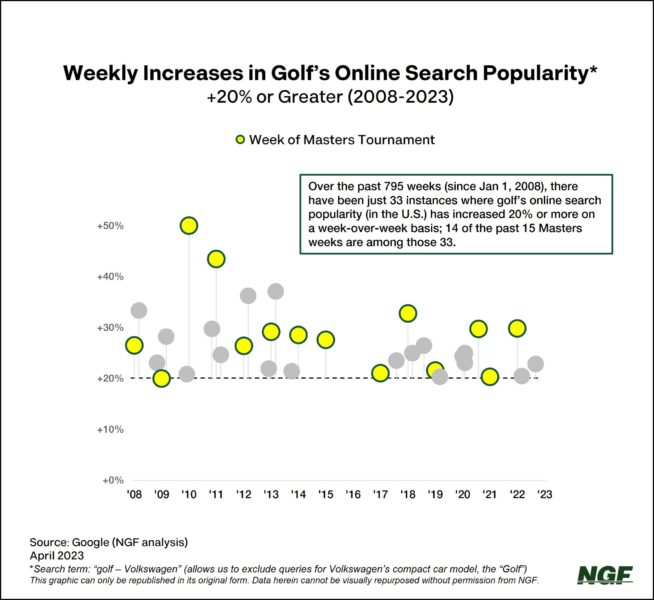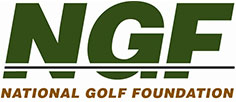JUPITER, Florida – There’s an intuitive but dubious “trickle-down effect” that professional and elite sport have on recreational participation and consumer behavior.
The suggestion – which seems reasonable enough – is that greater success and excitement at the top creates appetite among the masses. Governments often rely on this logic to justify high investments in sport.
The metaphorical pyramid is mostly unproven, though, as it appears to manifest in certain ways but not others. Tiger’s early success activated millions of players around the globe, but his impact on golf club sales for Nike was less pronounced. This past weekend, the women’s Final Four shattered attendance and viewership records, but the short- and longer-term effects on basketball participation are anything but guaranteed.
If there are any guarantees within this social influence framework, it might be the effect The Masters has on U.S. golf interest and commerce.
As one bit of empirical evidence, consider the data and graphic below, which illustrates the effect of Masters week on golf’s online search activity. In the 795 weeks that have passed since Jan. 1, 2008, only 33 of them have resulted in a 20% or greater week-over-week increase in overall search popularity for golf. 14 of the past 15 Masters weeks are among those 33. (The other 19 “big jumps” include several U.S. Opens/Father’s Days, along with the inaugural edition of The Match, when Tiger and Phil faced off in 2018 in Las Vegas).

An analysis of online searches for golf-related goods and services reveals a similar pattern. Over the past five years, the two biggest increases in search popularity for ‘golf shoes’ were Masters weeks, while three of the top seven jumps in ‘golf membership’ searches came during this famed early April stretch.
Of all the high-profile sporting spectacles, The Masters may be in a place of its own when it comes to motivating consumer category interest. Other annual events like the Super Bowl, Kentucky Derby and Daytona 500 draw considerable audiences, but aren’t affecting major participation sports. Even Wimbledon, the tennis-equivalent to Augusta, was once determined to not generate significant consumer spending on tennis product.
This past week was the clarion call for the start of the golf season and it certainly delivered as expected. The plot was thick, the characters were dynamic and the excitement for golf was as palpable as ever. The Masters should once again prove to be an impactful trigger for the golf business.


